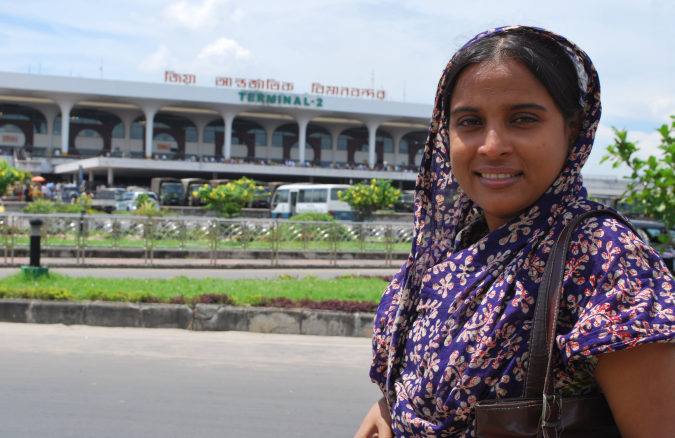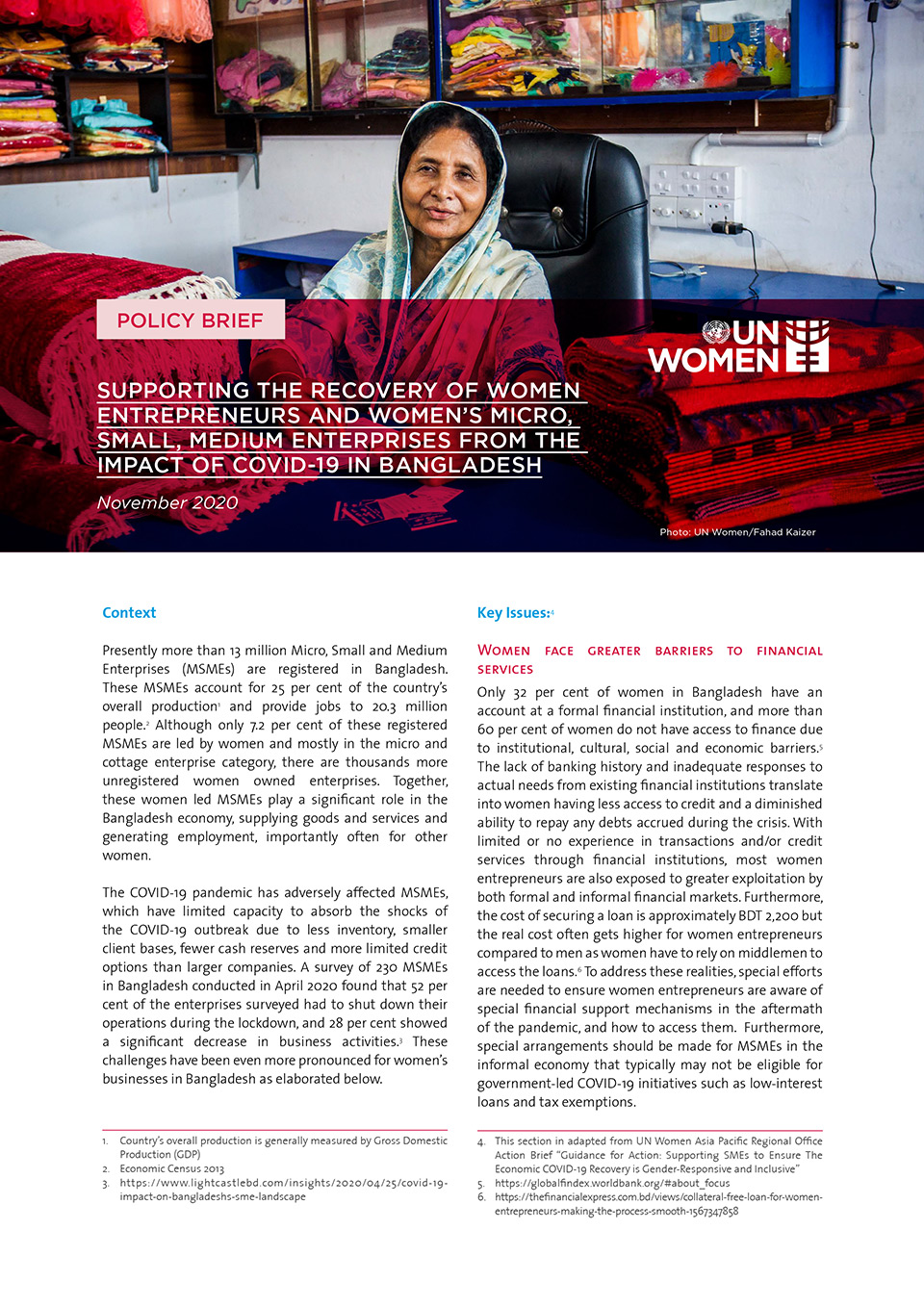Income security, decent work and economic autonomy for women

The issue
Only 4.6 percent females and 17.7 per cent of males are in formal sector employment. Because of systemic barriers, women account for only 8 per cent of Bangladesh’s entrepreneurs, and only 25 per cent of women have an account at a formal financial institution. Women continue to take on a major portion of domestic and unpaid care work, irrespective of them having jobs or not. In the formal sector, women earn an average of 21 per cent less per hour than men. Controlling for differences in age, educational background, industry, occupation and geographic location, yields an estimated a gender wage gap of 15.9 per cent, but including the effects of industrial and occupational segregation into the estimate yields an estimated wage gap of 23.1 per cent was noted.
How we are making a difference:
UN Women Bangladesh is committed to protecting and promoting the rights of women to work in just and favourable conditions in diverse sectors and occupations through changes in policies and practices. UN Women aims for women to have better access to economic resources, training opportunities, social security and social protection, and essential services that will reduce the unpaid care burden on women and enable them to engage more in productive work. UN Women in Bangladesh engages with the private sector to adopt the Women’s Empowerment Principles and commit to gender-responsive business policies and practices that will empower women within their own institutions and outside.
Latest news
Featured Publication
[Policy brief] The COVID-19 pandemic has adversely affected MSMEs, which have limited capacity to absorb the shocks of the COVID-19 outbreak due to less inventory, smaller client bases, fewer cash reserves and more limited credit options than larger companies. A survey of 230 MSMEs in Bangladesh conducted in April 2020 found that 52 per cent of the enterprises surveyed had to shut down their operations during the lockdown, and 28 per cent showed a significant decrease in business activities.3 These challenges have been even more pronounced for women’s businesses in Bangladesh. more
